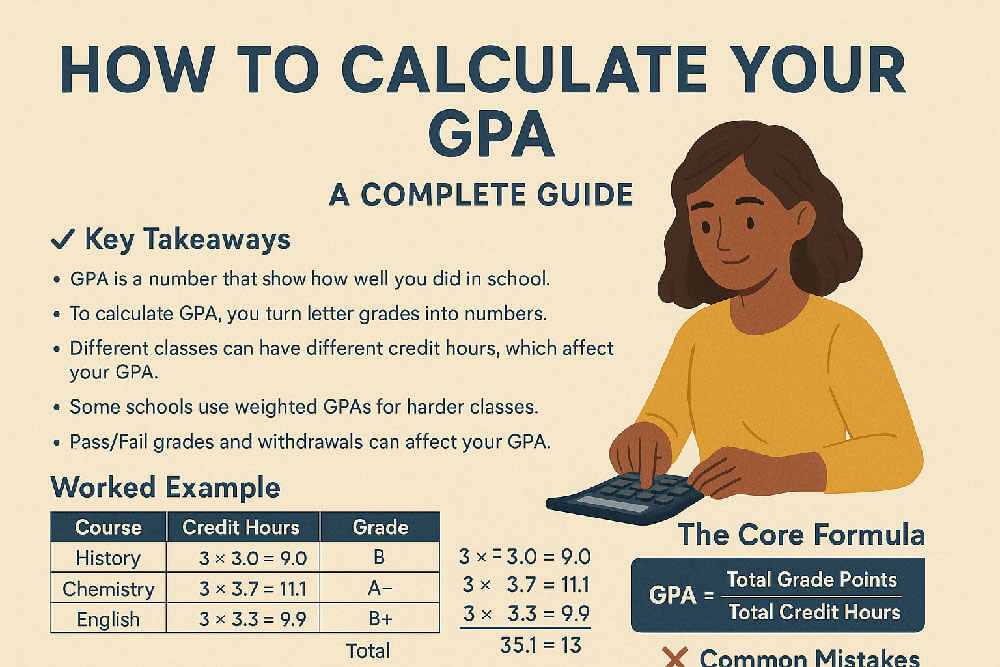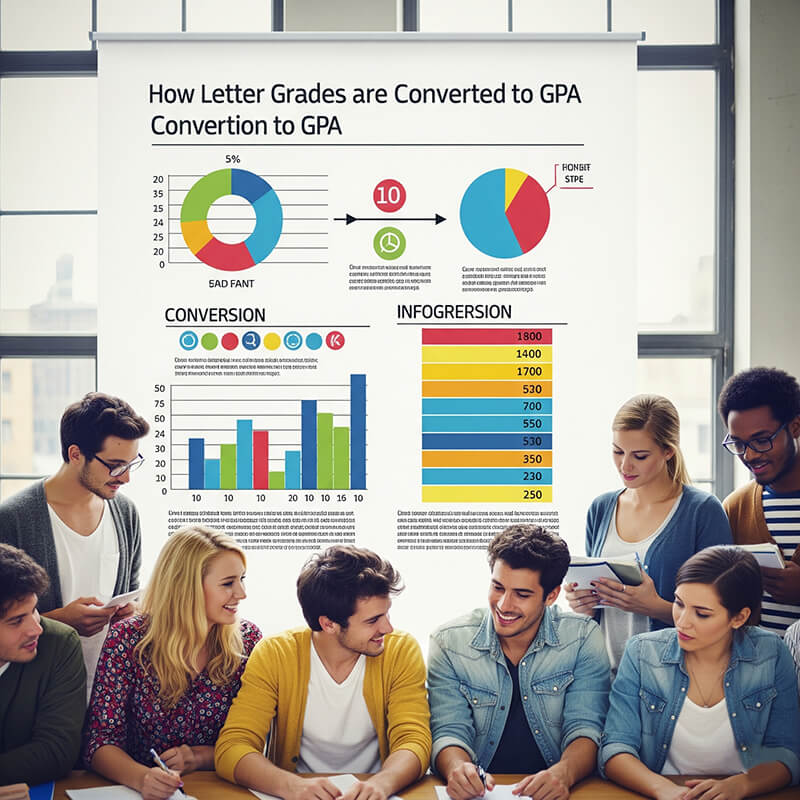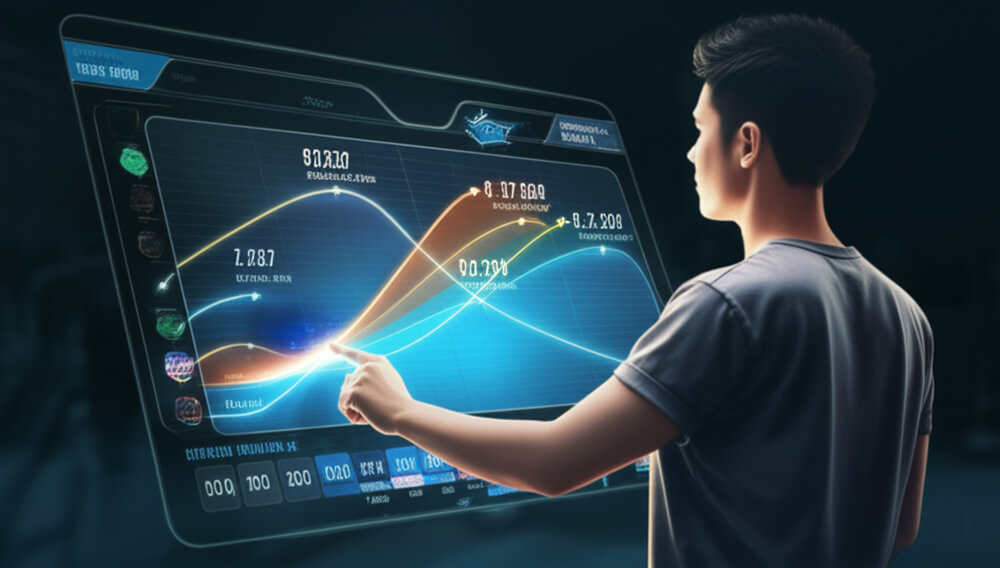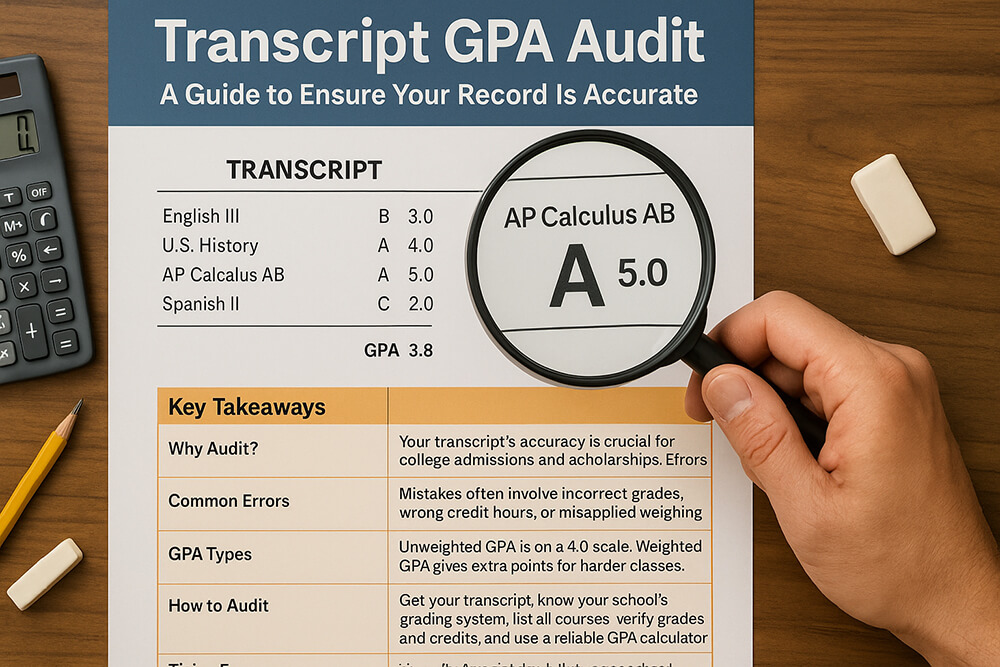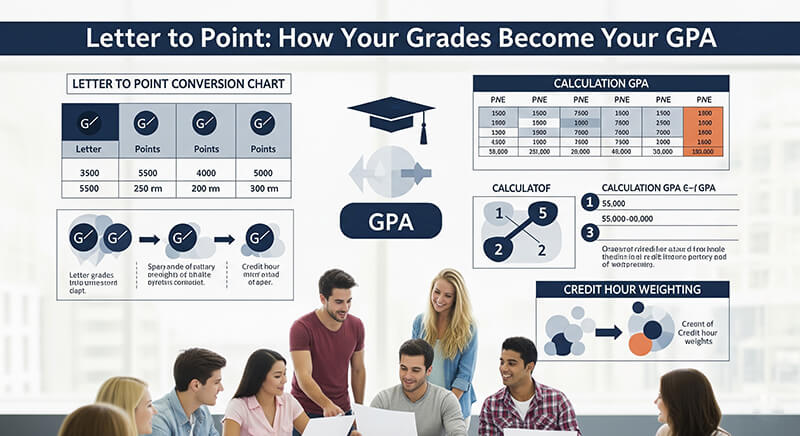10 Proven Study Tips for Better Grades and Higher GPA
Key Takeaways
| Study Tip | Why It Works | Impact on Grades |
|---|---|---|
| Active Learning | Engages your brain deeply instead of passive reading. | Can improve test scores by up to 54%. |
| Spaced Repetition | Reviewing material over time beats last-minute cramming. | Users scored 9 points higher on average than non-users. |
| Quality Sleep | Sleep helps your brain store and remember information. | Each hour of sleep lost can lower GPA by 0.07 points. |
| Strategic Note-Taking | Methods like the Cornell System organize information clearly. | Improves understanding and makes reviewing easier. |
| Understand Your GPA | Knowing how your GPA is calculated helps you set clear goals. | Prevents errors that could incorrectly lower your score. |
Start with the Basics: Understanding Your GPA
The first step to a better GPA is to understand it. Your Grade Point Average is a number that shows how well you are doing in school. Knowing this number helps you see where you are. It also helps you set goals for where you want to be. A clear understanding of your GPA makes your study efforts more focused.
You can learn the basics with a GPA formula guide. It is also helpful to know how to calculate your GPA correctly. Many students make simple mistakes, so it is good to learn about common GPA calculation errors to avoid.
Know How Your Grades Translate to Points
Each letter grade you get is worth a certain number of points. An A is worth more than a B. These points are used to figure out your GPA. Understanding this system shows you how much each class grade affects your total average. This helps you focus your study time on the classes that have the biggest impact.
For a clear breakdown, you can use a letter to point GPA conversion guide. This explains the difference between quality points vs. GPA. You can also see how to handle a percentage to 4.0 GPA conversion.
Use Active Learning to Engage Your Brain
Passive reading does not help you learn well. Active learning makes your brain work with the material. This includes things like quizzing yourself or explaining a topic out loud. Studies show that students who use active learning get much higher test scores. This method builds stronger connections in your brain for better memory.
Focusing your active study on important classes is a smart move. You can learn about balancing your efforts by understanding core vs. elective GPA. If you are thinking about changing fields, see the major change GPA impact tool.
Master Your Schedule with Spaced Repetition
Cramming for a test is a bad idea. Spaced repetition is a much better way to learn. This means you review your notes at set times. You review new information soon after learning it. Then you wait longer between each review. Research shows this method is great for long-term memory.
Using this study tip helps improve your grades each term. You can track your improvement with a semester GPA calculator. Over time, you can see your hard work pay off by using a cumulative GPA calculator.
Prioritize Sleep for Better Brain Function
Sleep is not a luxury. It is a key part of academic success. Your brain uses sleep to process and store what you learned during the day. Studies found that getting less than six hours of sleep hurts your grades. For every hour of sleep you miss, your GPA can drop. A consistent sleep schedule helps you perform your best.
Good sleep helps you stay on track with your academic goals. You can visit The GPA Calculator for more resources. To see how your current grades might turn out, use the mid-term grade projection slider.
Take Smarter Notes with Proven Methods
Good note-taking turns listening into an active task. The Cornell Method is a popular system. You divide your page into sections for notes, questions, and a summary. This makes you think about the material as you write. The Outline Method helps you organize information in a clear way. These methods make your notes useful for review sessions.
Good notes are essential for keeping your academic record strong. A transcript GPA audit guide can help you review your performance. You can also visualize your progress with a GPA trend graph generator.
Leverage Weighted Grades to Your Advantage
Some classes can boost your GPA more than others. Honors, AP, or IB classes are often "weighted." This means an A in these classes is worth more than a standard A. Taking these harder classes can raise your GPA above a 4.0. This is a smart strategy for students who want to challenge themselves and improve their academic standing.
It is important to understand the difference between weighted vs. unweighted GPA. A GPA weighting guide for Honors and AP classes can be very helpful. It is also good to be aware of some weighted GPA myths debunked.
Plan for Special Academic Scenarios
School is not always straightforward. You might have pass/fail classes, incomplete grades, or need to retake a course. Knowing how to handle these situations is key to protecting your GPA. For example, a "Pass" grade usually does not affect your GPA, but a "Fail" can hurt it a lot. Planning ahead for these cases reduces stress and keeps your GPA safe.
Learn how pass/fail grades impact your GPA. Create a plan with the GPA planning for incomplete grades guide. If you need to retake a class, the repeat course GPA recalculator can show you the potential impact.
Understand Different GPA Scales and Conversions
Not all schools use the same GPA scale. The most common is the 4.0 scale. However, some schools use a 5.0 scale, especially with weighted grades. If you transfer schools or apply for programs with different systems, you will need to convert your grades. Understanding these scales helps you present your academic record accurately.
Explore the different types of GPA scales to see how they compare. A 5.0 GPA scale guide can explain how weighted systems work. For international students, an IB to GPA conversion guide is useful. You can find more help with GPA conversion charts and tools.
Use GPA Tools to Set Goals and Track Progress
Technology can help you manage your grades. Online GPA calculators are great tools for planning. You can see how future grades will change your overall GPA. This helps you set realistic goals for each semester. Tracking your progress shows you if your study habits are working. It also motivates you to keep improving.
A high school GPA calculator can help younger students get started. For those in higher education, the college GPA calculator is essential. You can even look ahead with the freshman year GPA predictor.
Frequently Asked Questions (FAQ)
What is the fastest way to improve my GPA? The fastest way is to get high grades in your current and future classes. Focus on classes with more credit hours, as they have a bigger impact. Using active study techniques and managing your time well will help you earn those high grades.
How many hours a day should I study? There is no single answer. The right amount of time depends on your classes and your learning style. It is better to have focused, active study sessions than long, distracted ones. Try the Pomodoro Technique: study for 25 minutes, then take a 5-minute break.
Does re-reading my notes help me learn? Re-reading notes is a passive activity and not very effective for long-term memory. Instead, use retrieval practice. This means actively trying to remember the information without looking at your notes. You can do this by quizzing yourself or explaining the concepts to a friend. This method is much more powerful for learning.

